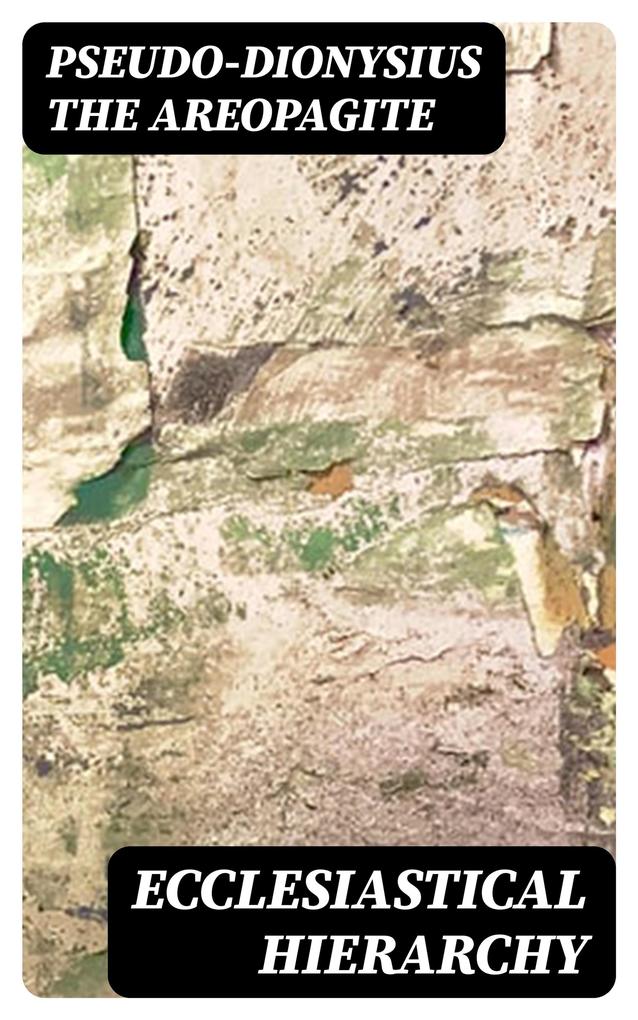
Sofort lieferbar (Download)
Pseudo-Dionysius the Areopagite's 'Ecclesiastical Hierarchy' is a seminal work in Christian mysticism and theology, exploring the celestial hierarchy and the organization of the Church. Written in the 5th or 6th century, the book is known for its rich symbolism, allegorical interpretations, and profound insights into the nature of the divine. Pseudo-Dionysius employs a poetic and mystical style, drawing on Neoplatonic and Christian traditions to elucidate the mysteries of the faith. The 'Ecclesiastical Hierarchy' is a must-read for scholars of religious mysticism and those interested in the development of Christian theology. The text continues to influence theologians and philosophers to this day, with its profound meditations on the nature of God and the spiritual hierarchy of the universe. Pseudo-Dionysius the Areopagite's work is a testament to the enduring power of mystical thought in shaping religious discourse and spiritual practice.
Produktdetails
Erscheinungsdatum
29. Mai 2022
Sprache
englisch
Seitenanzahl
62
Dateigröße
0,53 MB
Autor/Autorin
Pseudo-Dionysius the Areopagite
Übersetzung
John Parker
Verlag/Hersteller
Kopierschutz
mit Wasserzeichen versehen
Family Sharing
Ja
Produktart
EBOOK
Dateiformat
EPUB
ISBN
8596547019787
Entdecken Sie mehr
Bewertungen
0 Bewertungen
Es wurden noch keine Bewertungen abgegeben. Schreiben Sie die erste Bewertung zu "Ecclesiastical Hierarchy" und helfen Sie damit anderen bei der Kaufentscheidung.









